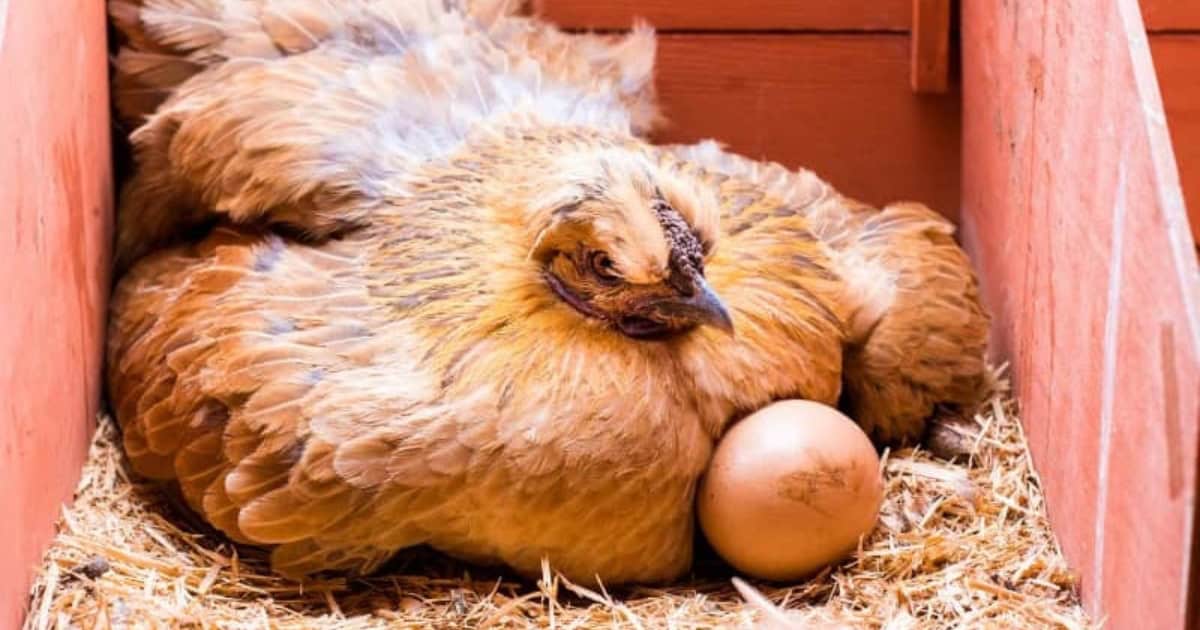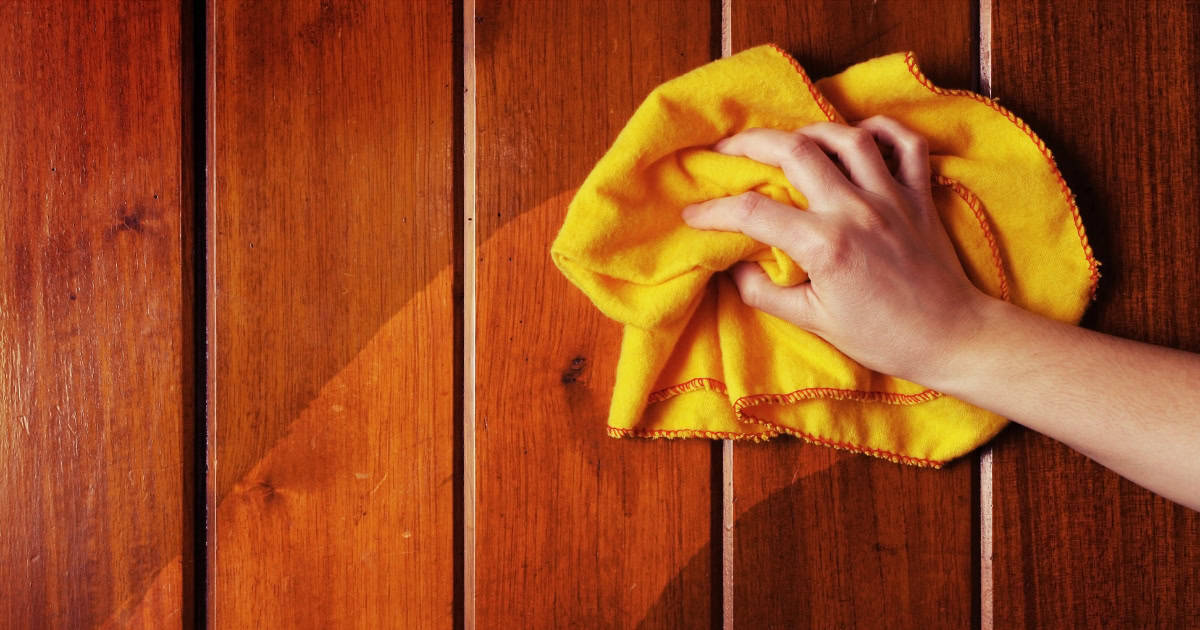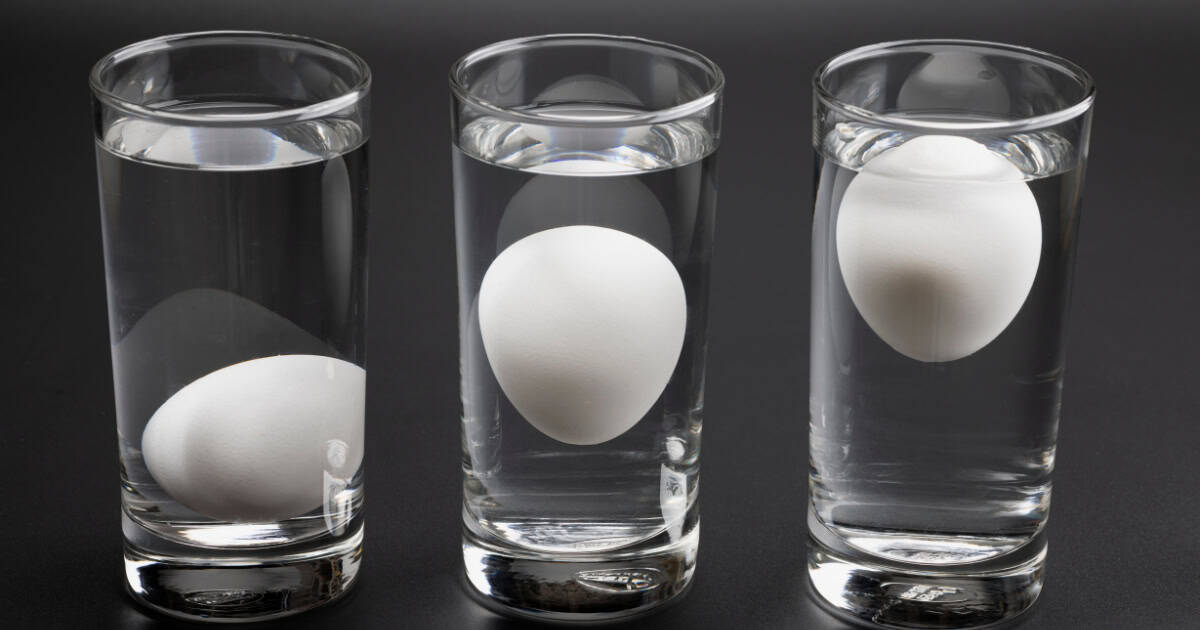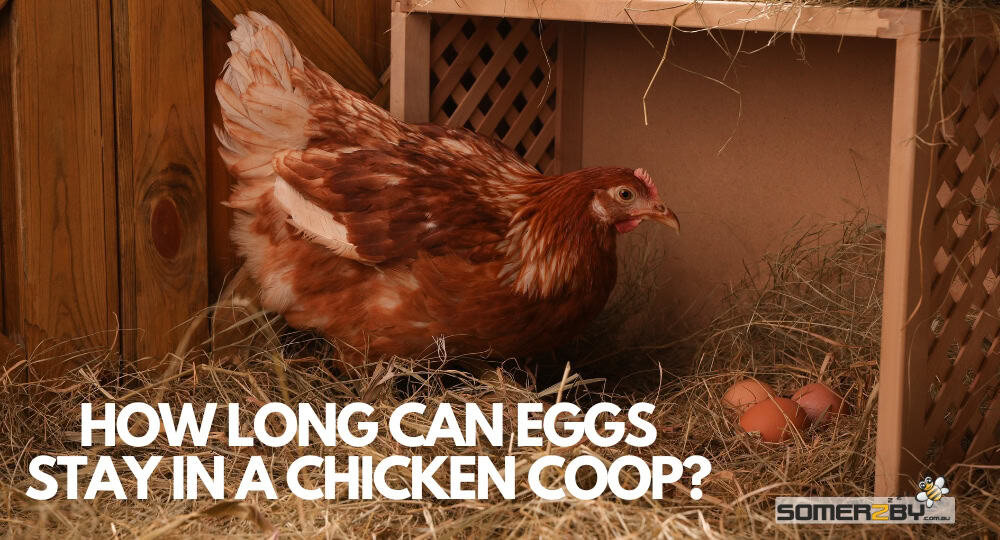Understanding how long eggs can stay in a chicken coop is an essential aspect of keeping chickens. Freshly laid eggs are a delight, but knowing when to collect them and how to store eggs effectively ensures their freshness and longevity.
In this post, we delve into the factors that affect egg longevity within the chicken coop. We will discuss temperature considerations that impact how long eggs can stay in the coop without compromising their quality. Furthermore, we’ll explore humidity’s role in preserving your home-laid eggs’ freshness.
We’ll also offer backyard chicken keepers with some of our top coop recommendations.
How Long Can Eggs Stay in a Chicken Coop?
If you’re new to keeping chickens, you might wonder how long you can leave fresh laid eggs in a coop. There is no correct answer, but generally, chicken eggs can remain fresh and safe for consumption for up to three weeks in the coop.
Continue reading for more information regarding the different factors that affect the freshness of eggs and how long can eggs stay in the coop.

Factors Affecting Egg Longevity
Eggs are eggcellent for nutrition, but their freshness can be affected by several factors when left in the chicken coop. Factors like temperature, humidity, airflow, and cleanliness significantly affect the shelf life of your chickens’ eggs. These variables can either preserve or degrade the quality and safety of the eggs, so it’s important to monitor and control them effectively.
Temperature
The chicken coop’s temperature plays a crucial role in determining the duration of freshness for the eggs. Maintaining a temperature between 10-15°C is ideal to ensure eggs remain fresh and prevent spoilage. High temperatures can promote bacterial growth, leading to spoilage, while very freezing temperatures may cause the eggs to crack and become inedible.
Temperature Considerations
To keep your coop in the ideal temperature range:
- Insulate properly: Effective insulation is key to maintaining a comfortable temperature inside your chicken coop throughout the year. In winter, it helps keep the coop warm, and in summer, it keeps it cool by reducing heat penetration. Consider materials such as foam boards, fiberglass, or reflective insulation panels.
- Avoid direct sunlight: Direct sunlight can significantly increase the temperature inside the coop. To manage this, position the coop in a shaded area, particularly during the hotter afternoon hours, to prevent overheating.
- Ventilate adequately: Proper ventilation is important to regulate the air temperature and quality inside the coop. Proper airflow allows hot air to exit and cooler air to circulate, maintaining a stable environment. You can view Somerzby’s range of well-ventilated coops here.
Humidity
Humidity level is another factor that significantly impacts egg preservation in chicken coops. The optimal range is 50-70% relative humidity. Levels that are too high can cause condensation on egg shells, creating an environment conducive to bacterial growth and mould. On the other hand, extremely dry conditions can cause eggs to lose their freshness faster due to excessive evaporation through porous shells.
Humidity Considerations
But how do you control humidity inside a chicken coop? Here are some tips:
- Ventilation: A well-ventilated coop helps prevent the accumulation of moisture, reducing humidity levels significantly. This is achieved by allowing stale, moist air to escape and fresh, dry air to circulate, ensuring the environment remains dry and less prone to mould and bacterial growth.
- Cleanliness: Keeping the chicken coop clean is essential to control dampness caused by droppings and spilled water. Regular cleaning routines remove waste and excess moisture, preventing the buildup of damp conditions that can foster bacteria and disease.
- Dry Bedding: Using absorbent materials like straw or wood shavings for bedding is ideal in maintaining dry conditions within the coop. These materials soak up excess moisture and help maintain healthy humidity levels within the coop. Regular replacement or addition of fresh bedding is also necessary to maintain these conditions.
- Moisture: Humidity levels in a chicken coop can be measured and maintained using a hygrometer, which is a tool that measures the moisture in the air. You can help increase humidity through a humidifier or placing a shallow water pan in the coop. To decrease humidity, use dehumidifiers or increase ventilation.
Ventilation
A well-ventilated chicken coop is crucial for maintaining the freshness of eggs. Proper airflow helps regulate temperature and humidity levels inside the coop, preventing moisture buildup. This not only ensures fresh air circulates effectively but also reduces the risks of mould growth and bacterial contamination, preventing premature spoilage of the eggs.
Ventilation Considerations
To ensure ventilation within the coop, consider the following:
- Design with vents or windows: Placing vents or windows strategically in the coop design significantly improves airflow by allowing fresh air in and pushing stale, moist air out. This effectively reduces humidity levels, which can otherwise encourage mould and bacterial growth. Coops and Cages have some great tips on coop design mistakes.
- Position vents high up: By positioning vents high up in the coop, you are able to utilise the natural movement of warm air which rises, ensuring that moist air doesn’t settle around the nesting boxes. This could lead to damp conditions favourable for bacteria and mould growth.
- Clean regularly: Regular cleaning is crucial in maintaining optimal ventilation. Dust and debris can block airways and restrict airflow, leading to stagnant air that could harbour pathogens.
Looking for a high-quality chicken coop with adequate ventilation? Check out Somerzby’s wide range of pet enclosures designed for comfort and safety for all pets, including chickens.

Cleanliness
A dirty chicken coop leads to waste, moisture, and bacteria build-up, which can contaminate eggs and reduce their freshness. Mold growth and pests like mites and flies thrive in unclean conditions, causing stress to chickens and affecting egg production. Without regular cleaning, eggs may become soiled or damaged. Regularly cleaning nesting boxes, replacing bedding, and disinfecting surfaces prevents bacterial growth and ensures eggs are laid in a clean environment, keeping them fresher and healthier longer.
Cleanliness Considerations
Know the best ways to keep your coop clean:
-
Routine Schedule: Maintaining a cleaning schedule provides your chickens with a safe and healthy environment to live and lay eggs. Regular cleaning also helps you easily notice any abnormal behavior in your hens.
-
Spot-Cleaning: With spot-cleaning, you should remove any visible food, waste or soiled bedding, this should happen daily or the days you collect your eggs. Once a week, replace all the bedding with fresh straw or pine shavings. It is the most popular method as it prevents odours and bacteria from spreading.
-
Products: Vinegar is an effective natural disinfectant with antimicrobial properties, ideal for cleaning your chicken coop. Mix equal parts vinegar and warm water in a spray bottle, then apply it to surfaces like nesting boxes, perches, and walls to kill bacteria and neutralize odours. Let the area dry before reintroducing your chickens. Provide your coop with a deep clean monthly.
How To Tell If Eggs Are Fresh? Do Fresh Eggs Sink or Float?
When it comes to determining the freshness of eggs, the floating test is often used. Fresh eggs tend to sink when placed in water, while older eggs are more likely to float. When an egg sinks, it indicates that its freshness is preserved, making it suitable for consumption.
On the other hand, if an egg floats, it suggests that it is no longer as fresh. This is because fresh eggs have a smaller air cell inside, meaning less air has penetrated the eggshell. The denser contents of a fresh egg cause it to sink in water.

FAQ
Do You Have To Collect Eggs Every Day? What Happens If You Don’t Collect Eggs Daily?
Yes, it’s recommended to collect chicken eggs every day for freshness and cleanliness reasons. It is important to thoroughly search all areas of your chicken enclosure as you may find eggs in areas outside of the dedicated nesting space. If you can’t collect eggs every day, aim for collecting fresh eggs at least every other day to prevent them from becoming spoiled.
Can You Eat Eggs Right After They Have Been Laid?
Yes, freshly laid eggs are safe to eat immediately. However, it’s important to note that fresher eggs are more difficult to peel, especially when they’re hard-boiled. As eggs age, the pH level of the egg white increases, which makes the shell easier to remove when boiled. The ‘perfect’ time, when it comes to balancing egg freshness and ease of peeling, is usually around 7-10 days.
Can You Eat Eggs That Have Been In The Coop For A Few Days?
Yes, if you store eggs properly at cool temperatures, they remain fresh for several days. To determine if an egg is off, perform the egg float test or crack the shell of the egg open and check for any signs of spoilage, such as an unpleasant odour or unusual appearance.
How Long Can Freshly Laid Eggs Sit Out?
Freshly laid chicken eggs can safely sit out at room temperature for about two weeks. For a list of the best egg-laying chickens, check out this guide.
Should You Wash Eggs Before Consumption?
It is important to not wash fresh eggs unless necessary. Eggs have a protective natural coating called the “bloom” or “cuticle” on their shells, which helps to seal the pores and prevent bacteria from entering the egg shell. This protective coating also helps to maintain the freshness and quality of the egg.
If an egg is visibly dirty or soiled, it is best to clean it using a dry cloth or paper towel rather than washing it with water. Washing your egg can strip away the protective bloom, which increases the risk of bacteria entering and can cause the egg to spoil faster.
Toni’s Wrap
Temperature, humidity, and ventilation all play a role in how long chicken eggs can last in a chicken coop. I generally find chicken eggs stay fresh for up to two weeks if stored properly in cool temperatures and low humidity.
However, if these conditions aren’t met or if the eggs have been sitting for too long, they may no longer be safe to eat, so it’s important to keep your coop well-maintained to ensure your chickens lay high-quality eggs.
From my personal experience of keeping chickens, gathering eggs from your chickens is a fun and fulfilling activity.
I recommend checking out Somerzby’s range of well-designed chicken coops, perfect for providing a comfortable and suitable environment for egg-laying chickens.




